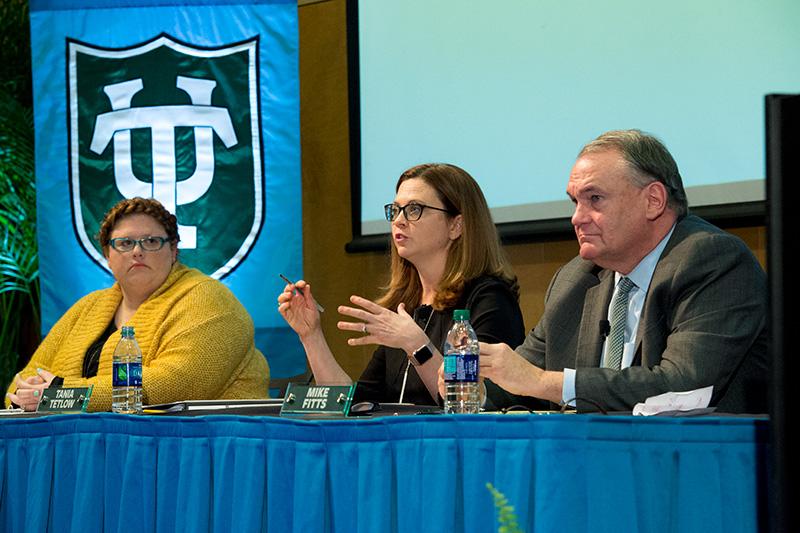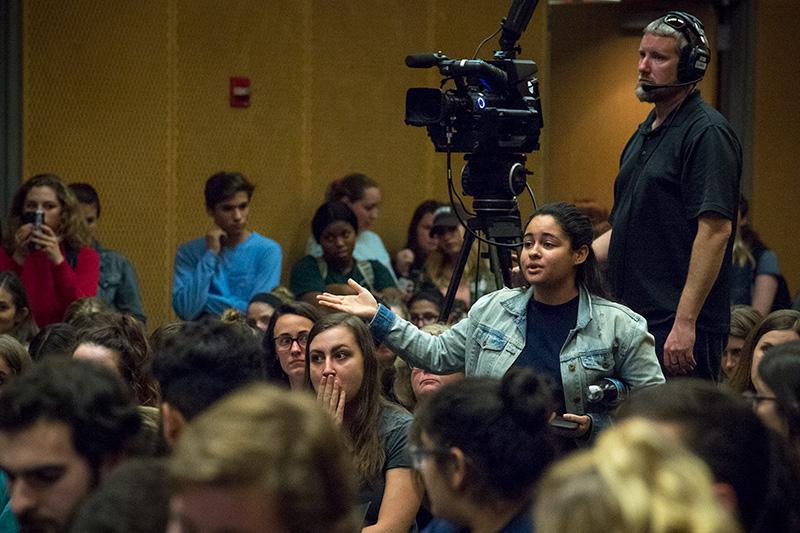Results of sexual misconduct survey draw large crowd, emotional response
The “heartbreaking” results of the Tulane Climate Survey on Sexual Misconduct were released Wednesday, Jan. 31, at an all-campus town hall. Students with a keen and passionate interest in the survey results quickly filled 400 seats in the Kendall Cram Room of the Lavin-Bernick Center (LBC).
The event was live-streamed to two locations on the downtown campus and to two other rooms in the LBC to accommodate the overflow crowd.
The survey—conducted in spring 2017—drew a 47 percent response rate, with 4,644 Tulane students completing the survey out of nearly 10,000 students invited to participate.
The extensive survey data, grouped by the respondents’ gender, race and sexual orientation and whether they were undergraduate or graduate students, presents a complex picture of sexual misconduct on the Tulane campus.
Among the more striking findings is that 41 percent of undergraduate women survey respondents reported experiencing sexual assault since enrolling at Tulane. In the majority of the incidents of sexual misconduct, the use of alcohol as a weapon by perpetrators was a major factor. The full survey results are available at Wave of Change.
The results were presented by Tulane President Mike Fitts, along with Tania Tetlow, senior vice president and chief of staff to the president, and Meredith Smith, assistant vice provost for Title IX and Clery Compliance.
Webinars will be held in the next few days for alumni, admitted students and their parents, plus parents of current students to discuss the survey results.
Following the presentation of the data, audience members jumped at the opportunity to ask questions about specific actions and policies of the university. Many heated questions focused on the status of minority groups, LGBQ+ students and Greek-letter organizations.
Fitts said that Tulane is fully committed to charting a path forward to keeping all Tulane community members safe from sexual assault and harassment. “It is our No. 1 commitment,” he said.
Tetlow announced an initial action plan, including increased integration of sexual violence prevention into the Tulane experience, increased visibility for specific issues of intersectionality and sexual violence, establishing greater means for student engagement, expanding community support for survivors and encouraging reporting, and articulating a transparent evaluation plan and further research.
Of the survey respondents, 84 percent agreed that “Tulane did/would support them.”
Smith was touched by the students’ trust in Tulane. “This is especially heartening,” she said. “We have the ability to write the ending on this.”
For more information about the survey and details about the upcoming webinars visit the Wave of Change website.


